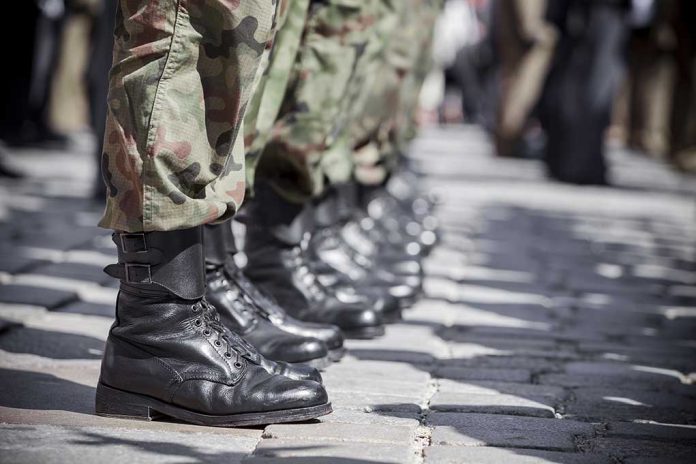
Serbia is set to reinstate mandatory military service, as President Aleksandar Vucic receives strong arguments from top army commanders in favor of the draft.
At a Glance
- Serbia plans to reintroduce compulsory military service due to regional tensions.
- The proposal suggests a service duration of up to four months.
- President Vucic cites the need for a strong army in today’s geopolitical climate.
- The decision follows an analysis of Serbia’s security situation and contemporary challenges.
- Critics question the need for military buildup given Serbia’s NATO-surrounded position.
Serbia’s Military Readiness Initiative
In a move that echoes the region’s growing concerns over security, Serbia is considering the reintroduction of compulsory military service. This decision comes as a response to increasing tensions in the Balkans and broader European security challenges. President Aleksandar Vucic, backed by top military brass, has put forward a proposal that will be voted on by the national parliament, where his allies hold a majority.
The proposed military service is expected to last between 90 to 110 days, with President Vucic emphasizing the importance of a robust national defense. The Serbian Defense Ministry has suggested a service duration of up to four months, following an in-depth analysis of the country’s security situation and contemporary challenges.
Serbia is poised to reintroduce compulsory military service for men.#Serbia #MilitaryService #Defense https://t.co/W0yjoQWTlT
— TVP World (@TVPWorld_com) September 6, 2024
Regional Tensions and Strategic Considerations
The Balkans have experienced high tensions since the breakup of Yugoslavia in the 1990s, with recent events further complicating the geopolitical landscape. Serbia maintains close military ties with Russia, purchasing most of its arms from them, while simultaneously seeking EU membership. This delicate balancing act is reflected in Serbia’s refusal to sanction Russia over the Ukraine invasion, despite pressure from Western allies.
Tensions are particularly high around Kosovo, which declared independence in 2008 but is not recognized by Serbia, Russia, or China. Serbia has raised combat readiness on the Kosovo border multiple times in recent years, highlighting the volatile nature of the region. Additionally, in Bosnia, Bosnian Serb leader Milorad Dodik has threatened to declare independence for the Serb-controlled region and unite it with Serbia, further destabilizing the area.
Challenges and Criticisms
While the Serbian government views the reintroduction of mandatory military service as a necessary step to enhance national security, critics question the need for such a military buildup. They argue that Serbia’s position, surrounded by NATO member states, does not justify the potential financial strain this move may place on the country’s resources.
Previous proposals to reinstate the service were shelved due to high costs, and it remains to be seen how Serbia will address these financial concerns. The decision also raises questions about the impact on young Serbians and the country’s workforce, as mandatory service could potentially disrupt education and career paths for a significant portion of the population.
International Implications
Serbia’s move to reintroduce conscription comes at a time when other European nations are reassessing their military strategies. Croatia, Serbia’s neighbor and former Yugoslav republic, has already announced plans to reinstate compulsory military service starting January 1, 2025. Even the United Kingdom has recently suggested reinstating mandatory military service. This trend reflects growing concerns over regional stability and the changing nature of global security threats.
As Serbia moves forward with this significant policy shift, the international community will be watching closely. The decision could have far-reaching implications for regional dynamics, potentially influencing neighboring countries’ defense policies and affecting Serbia’s relationships with both its Western allies and Russia. As the Balkans continue to navigate complex geopolitical waters, Serbia’s military readiness initiative may well set a precedent for how smaller nations approach national defense in an increasingly uncertain world.
Sources:
- Serbia considers reintroducing a mandatory military draft as regional tensions simmer
- Amid Regional Tensions, Serbian Defense Ministry Proposes Compulsory Military Service
- Serbia ready to reinstate draft, confirms president
- Serbia to Reintroduce Compulsory Military Service
- Europe’s Conscription Challenge: Lessons From Nordic and Baltic States
- Serbian government plans to reinstate mandatory military service
- Military service age and obligation
- In Europe, politicians eye Gen Z — to fight
- Serbia considers reintroducing conscription as regional tensions grow






















